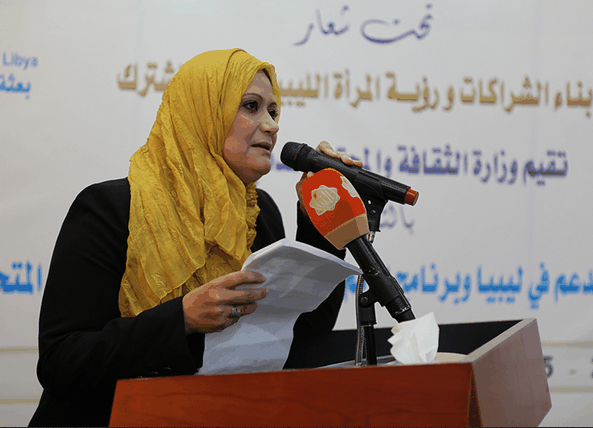As the process of drafting the constitution for post-revolution Libya draws closer, women institutions and groups, in cooperation with the United Nations, intensified their efforts to strengthen the role of Libyan women and empower them to effectively participate in political life through a joint plan of action.
These were part of discussions at a workshop which opened Sunday 22 September 2013 in Tripoli. The “Building Partnership: Libyan Women’s Vision of Joint Action” workshop was organized by the Ministry of Culture and Civil Society in cooperation with the United Nations Support Mission in Libya (UNSMIL) and the UN Development Programme (UNDP).
The 4-day workshop brought together representatives of women organizations from across Libya, representatives of the General National Congress (GNC) and the Libyan Government as well as UN experts.
The workshop aims to build a joint plan of action to empower women and strengthen their political participation and involvement in the democratic transition through the establishment of a special coalition. The coalition aims to bring together representatives of groups and political parties who can support and follow up on women’s demands to legislators and decision-makers.
Speakers at the opening session have all stressed the need for convergence of views as well as for strong and effective strategies to ensure a successful role for women in Libya’s transitional period.
“Libya today is in great need for educated and informed women who are aware of the changing reality around them so that they are able to contribute to its reform and change,” said Mrs. Jamila Fallag (pictured), undersecretary of the Ministry of Culture and Civil Society.
Mrs. Fallag stressed “the importance of women supporting women and building partnerships in national action, putting national priorities as a general goal so that women do not become preoccupied in pursuing their own issues away from the national issues, and so that women do not ignore their role in social peace, ending armed conflict, national dialogue, peace building and mending a fraying social fabric.”





